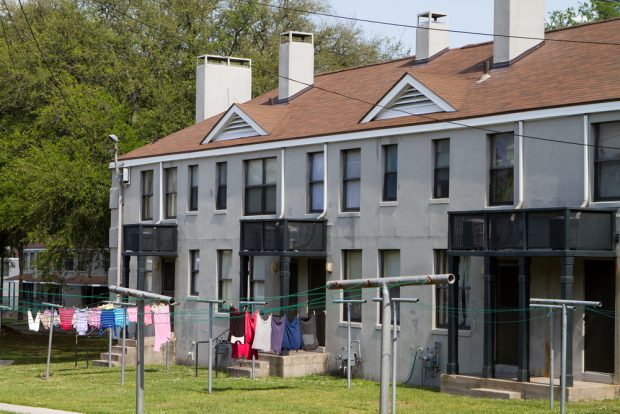
The Trump Administration on Tuesday proposed to rescind $174 million already appropriated for the Community Development Financial Institutions program—a cut that credit union trade groups said will directly affect efforts to provide housing and other services to low-income people.
The administration sent a $15 billion rescission package to Capitol Hill Tuesday. That package included cuts to many programs the administration opposes.
The proposed cuts include slashing the CDFI Bank Enterprise Award Program by $23 million. That money is used to award FDIC-insured depository institutions that support CDFI institutions.
The administration also proposed to rescind $151 million for the CDFI Capital Magnet Fund. That program funds competitive grants to provide money to housing nonprofits and allows CDFI-certified institutions to finance affordable housing and related community development and community services facilities.
The administration said the magnet program is inconsistent with the administration's priorities, adding that “state and local governments and the private sector have a greater role to play in addressing affordable housing needs.”
Enacting the rescission would reduce the funds available for grants under this program.
“The rescission of funding for BEA and Capital Magnets will directly impact consumers in low-income communities served by CDFI certified credit unions,” Cathie Mahon, president/CEO of the National Federation of Community Development Credit Unions, told CU Times.
The BEA program has helped stimulate millions of dollars in deposits for low-income credit unions, allowing them to increase lending for members, she said.
“These partnerships between banks and community development credit unions provide a rare and important example of how collaboration between our industries results in increased responsible lending for low-income consumers,” she said.
Cuts to the CDFI program hits the very communities that need such services the most, she added.
The Trump Administration has been attempting to cut the CDFI program since President Trump took office. Those efforts have been rebuffed by Congress, which, this year, increased funding for the program.
“These funds have received tremendous support from Capitol Hill,” said Ryan Donovan, CUNA's chief advocacy officer. He said CUNA will continue to push for funding of the program.
The CDFI program is an important resource for many credit unions, said Brad Thaler, NAFCU's vice president of legislative affairs. He said the association has worked with Congress to obtain full funding for the program, “and we believe Congress should continue to fully fund the CDFI program.”
It remains to be seen if Congress even wants to tackle a rescission program in this mid-term election year. While such cuts might pass the House, they may not be well-received in the Senate, where they are likely to need 60 votes to pass.
“There may not be support for rescissions in the Senate,” Donovan said.
© 2025 ALM Global, LLC, All Rights Reserved. Request academic re-use from www.copyright.com. All other uses, submit a request to [email protected]. For more information visit Asset & Logo Licensing.







